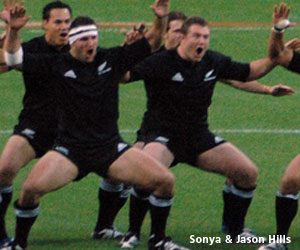Aug 11 2016
Do Superstitious Rituals Help Performance?
 With the Olympics brings a great deal of attention to sports and sporting culture, including the latest fads that are sweeping athletes. It is well known that athletes, for example, are very superstitious, and it’s fun to talk about their crazy personal rituals.
With the Olympics brings a great deal of attention to sports and sporting culture, including the latest fads that are sweeping athletes. It is well known that athletes, for example, are very superstitious, and it’s fun to talk about their crazy personal rituals.
A 2016 review of the literature confirms the association between sports and superstitions. They find that there are cultural and situational factors at play. The situational factors include:
In agreement with past theories, they increase with the level of challenge, as reflected by the importance of the competition, as well as with the level of uncertainty.
People engage in superstitious behavior to have a sense of control, and they need that sense of control when the stakes are high and uncertainty is high. This explains the observation that more elite athletes engage in more superstitious behavior.
I would include in superstitious behavior the use of dubious medical treatments. The obvious fad at the 2016 Olympics is cupping, evidenced by the red circular “hickies” you can see on the backs of many athletes, especially swimmers. In the 2012 Olympics the winning pseudoscience was kinesiotape – that colored tape every athlete seemed to be wearing. There is still some tape visible this time, but its popularity seems to be much lower.
Pseudoscience, superstitions, and the Olympics are likely to remain closely associated. The stakes could not be higher at the Olympics, and with the best athletes from around the world competing, uncertainty is also likely to be high – the perfect recipe for superstition.
But Does It Work?
Superstitions, by definition, are magical thinking. You cannot actually influence the outcome of an event by wearing your lucky sweater. Many of the questionable medical interventions, like cupping, kinesiotape, supplements, cryotherapy, and others, lack a plausible mechanism and lack evidence for efficacy.
The question of whether or not these interventions have physiological efficacy is often easy to answer, most of them don’t. The more difficult question to answer is this – does belief in these superstitious ritual or dubious treatments have a positive psychological effect.
The conventional wisdom is that they do, but the evidence to back this up is scant. In fact I could only find references to one study – a German study looking at college students who were asked to make putts and perform other motor tasks. Performance did improve when they had a lucky charm, or were encouraged with a lucky phrase (the equivalent of, “I’m keeping my fingers crossed for you”).
This study cannot be extrapolated to elite athletes, however. Here are the factors to consider:
It does make sense that performing a ritual (whether applying magical tape, or rubbing a lucky charm) can have a calming and reassuring effect, and can improve confidence.
At the same time, the existence of a superstitious belief makes athletes anxious about the need to activate the ritual. This anxiety may offset any calming effect of eventually performing the ritual.
I would also like to know how non-superstitious rituals compare to rituals that involve magical thinking or placebo interventions. Perhaps just going through your warm up routine, or mentally preparing yourself, is just as effective, or even more effective.
Finally, it is likely that any such confidence-boosting effects diminish as professionalism increases. In other words, the more experienced the athlete, the more they are going to be consistently performing at their peak, and the less room there is for any benefit from a confidence-boosting gimmick.
As evidence for this interpretation is the absence of a hot-hands effect. This refers to the alleged phenomenon in which making a basket (or having any successful outcome in a sport) is more likely to be followed by more success, because of the confidence boost of the prior success. If you make one basket, you are more likely to make another, you have “hot hands.”
Similarly, if you miss a basket, your confidence is reduced, and you are morel likely to miss the next basket.
However, the evidence suggests there is no hot-hands effect in professional basketball. Admittedly, this is still debated among statisticians, but clearly there is no large effect (or it wouldn’t be debatable).
So – if the confidence boost from performing well does not have a significant effect in professional or elite athletes, it seems unlikely that the confidence boost from a superstitious ritual will have a measurable effect.
There are those who argue that, even if the effect is tiny, winners are determined by fractions of a second in the Olympics. This is true, but it is possible that the effect of superstitious rituals is zero or even negative. Further, we really need to compare superstitious rituals to non-superstitious rituals. Similarly, we would need to compare dubious medical interventions to benign ones, or ones without dubious claims.
I suspect that getting cupping prior to a race is no more effective than getting a relaxing massage minus any dubious health claims about toxins or chi. Visualizing your floor routine is probably as or more effective than rubbing your lucky charm.
The magical rituals are just unnecessary, and the scant evidence for a confidence effect is not convincing and there is good reason to conclude it does not apply to elite athletes.






